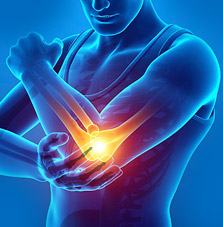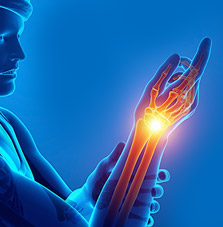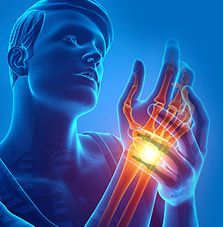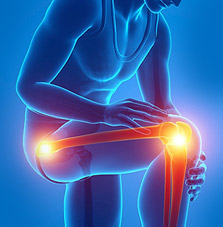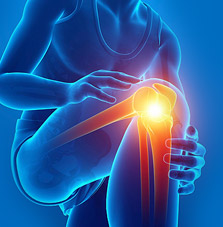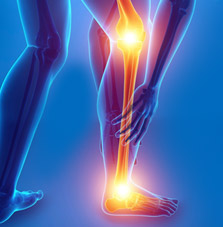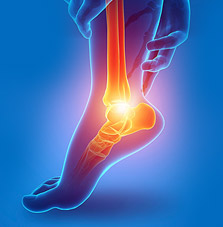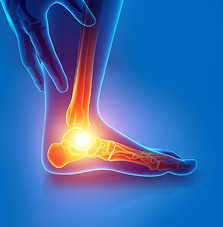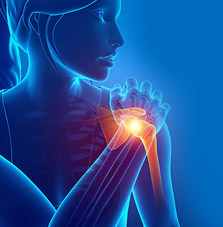
MRI for sports injury
Repetitive movements from running and aerobic exercise that cause muscle and ligament strain; and collisions and falls on the sports field or other impact sports are just a few of the reasons why you may need an MRI for sports injury.
An MRI for sports injury can be used to investigate acute pain after an accident or sudden injury as well as chronic aches and pain due to cumulative damage that builds up over time. The 3D imaging is highly sensitive and can give a clear picture of muscle, tendon, and ligament damage as well as changes to bone due to fractures.
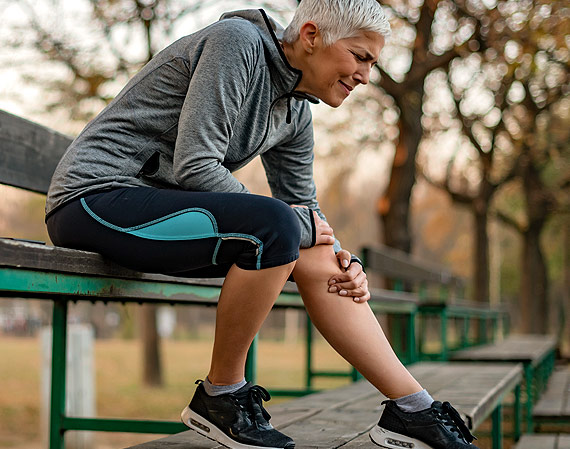
Medserena MRI for sports injury
Medserena’s MRI for sports injury is carried out in an upright and open scanner, with the spine in a weight-bearing position either sitting or standing depending on the location of the injury and pain. Examining the spine under the natural load of gravity shows intervertebral discs when they are exposed to pressure that is five times higher than when lying down.
MRI scans can look in detail at common injury sites including the hip flexors, knees, elbows, ankles, and shoulders, to check for muscle strain, ligament and tendon tears, trapped nerves and cartilage problems. They are particularly useful for investigating knee injuries such as anterior cruciate ligament tears, stress fractures and swelling that might not be visible on an x-ray. It can be useful in assessing more subtle tendon injuries and damage to articular cartilage after knee dislocation.
The excellent soft tissue contrast in MRI and its ability to image small structures makes it the first choice in assessing sports injuries.
What type of injuries can an MRI for sports injury detect?
- Achilles tendinopathy: This can cause ankle and heel pain, as well as pain in the calf muscle associated with activity, redness, swelling and a lump in the Achilles, making the foot hard to move. This condition is usually caused by injury related to running or jumping or inflammation in the tendon. The Achilles tendon runs from the calf to the heel bone.
- Shin splints: Also known as medial tibial stress syndrome, shin splints are caused by inflammation of muscles and tendons attached to the tibia (shin bone). It can cause pain in the front of the shin after exercising.
- Hamstring strain: This is one of the most common injuries in football players. It’s caused by rapid extension and contraction of the three hamstring muscles in the back of the thigh. Hamstring strain commonly happens when sprinting, jumping, playing football and in other contact sports.
- Bursitis: Bursae are fluid-filled sacs that cushion joints and are found where tendons and ligaments move over bone. They can become inflamed with repetitive friction or underlying conditions such as gout or arthritis. Symptoms include warmth and pain at the back of the ankle and restriction of movement.
- Iliotibial band syndrome[i]: This is often caused by running, and is characterised by pain on the outside of the knee. It can be mistaken for a knee injury but if there is no swelling then it’s likely to be ITBS. MRI can show a partial thickening of the band, which results from inflammation.
- Iliopsoas tendonitis: This is inflammation of the tendon within the iliopsoas muscle also known as hip flexors, which help you to flex the hip and stabilise the spine. Overuse injuries occur commonly in athletes. A history of groin pain or pain at the front of the hip is common; it can make a clicking noise and is often worse when bending the hip.
- Anterior Cruciate Ligament/Poster Cruciate Ligament injuries: These are the main ligaments at the front and back of the knee. A sprained or strained knee ligament or muscle is usually caused by a blow to the knee or a sudden twist of the knee. Symptoms often include pain, swelling, and difficulty walking.
- Patellofemoral pain syndrome: This is one of the most common knee sports injuries and causes pain at the front, around and behind the kneecap. It causes a dull, aching, pain which is usually worse with activities where you bend your knee, or if you sit with your knees bent for a long time.
- Shoulder instability: This usually occurs when the lining of the shoulder joint (the capsule), ligaments or labrum become stretched, torn, or detached, allowing the ball of the shoulder joint (humeral head) to move either completely or partially out of the socket. It can be a one-off or become a recurrent problem and needs urgent medical treatment. An MRI shoulder scan is the best tool for assessing shoulder instability.
- Compartment Syndrome: Compartment syndrome is a painful condition that occurs when pressure within the muscles builds to dangerous levels. This pressure can decrease blood flow, which prevents nourishment and oxygen from reaching nerve and muscle cells. The pain and swelling of chronic compartment syndrome are caused by exercise. Athletes who participate in activities with repetitive motions, such as running, cycling, or swimming, are more likely to develop chronic compartment syndrome. This is usually relieved by discontinuing exercise and is usually not dangerous.
MRI scans for Sports injuries
Other benefits of a Medserena MRI for sports injury
Open MRI scanners are a stress-free alternative to using a conventional enclosed tunnel MRI scanner, providing comfort and reassurance for people who suffer from anxiety or claustrophobia. Sitting upright is more comfortable for patients and the open front means patients can speak to a friend or relative or watch television throughout as distraction.
Open MRI scans can also accommodate larger/ heavier patients who might have difficulty fitting comfortably into a conventional tunnel scanner, as they can take weights of up to 35 stone (226kg). However, suitability will depend on the patient’s build and the area of anatomy that needs to be scanned.
Location for Truly upright Spine & Back MRI scans
Our scans can be performed in London or Manchester
From only £395.00
Prices are self-pay only, inclusive of Radiologist report
Same day appointments
Many MRI scans can be booked for the same day

